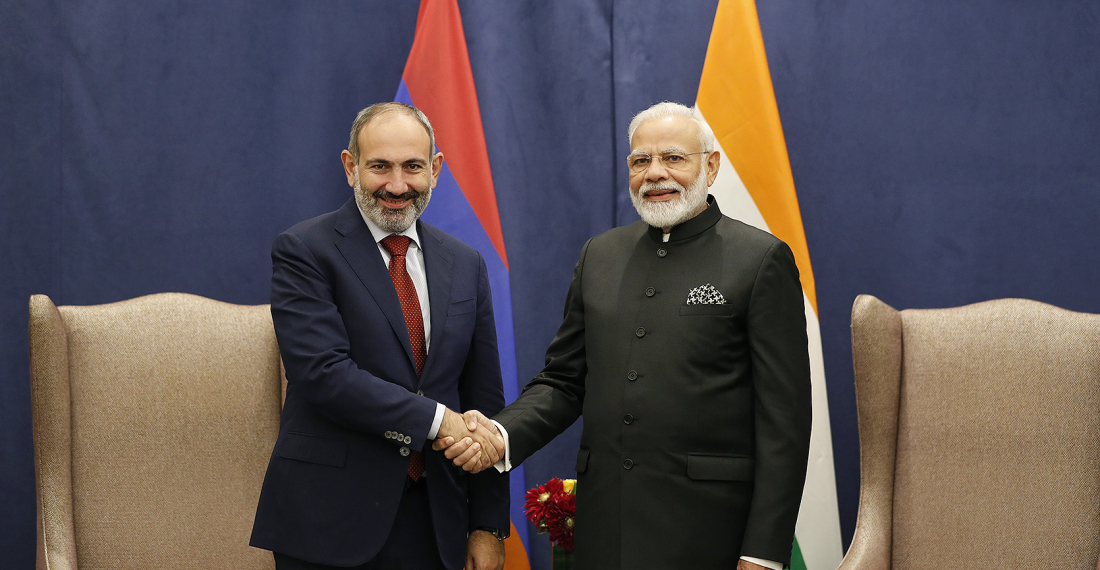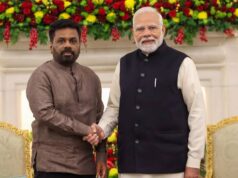Armenia India, building A strategic relationship

The historical relationship between India and Armenia has now turned into a strategic relationship.
Armenia became independent of Soviet Union in 1991 following which USSR disintegrated. However a demand by ethnic Armenians living in Nagorno Karabakh for transfer of the Nagorno-Karabakh Autonomous Oblast (NKAO) from Soviet Azerbaijan to Armenia had started in 1988 itself.
As the Soviet Union collapsed, tensions grew into an outright war. When fighting ceased in 1994, Nagorno-Karabakh and seven adjacent districts were wholly or partially controlled by Armenian forces. More than a million people had been forced from their homes: Azerbaijanis fled Armenia, Nagorno-Karabakh and the adjacent territories, while Armenians left homes in Azerbaijan.
This longest running conflict in post Soviet Eurasia turned into a full fledged war in 2020 upto 2023. The fractured geopolitical situation in the South Caucasus then witnessed regional power rivalry.
While, Russia, which had been the main support system of Armenia in the post-Soviet space, embroiled in several issues, especially the Western sanctions, following its war with Ukraine and thus taking scant interest in the issues related to Armenia and Azerbaijan. Whereas Turkey and Pakistan stepped in support of Azerbaijan.
The silence of Russian during the Nagorno-Karabakh war in 2023 for whatever reason casts doubt in minds of Armenia in its dependence on Russia in the coming times.
So they turned towards India the only country with ability to play an anchoring role in the South Caucasus because of her strategic and economic interests in the region. Also Russia having no inhibition for India playing its part in the South Caucasus.
India’s External Affairs Minister S Jaishankar had paid a visit to Yerevan in October 2021, the first of its kind by a high-profile Indian leader in the last three decades, showing India’s keen interest in Armenia. The last four years also saw many diplomatic parleys between New Delhi and Yerevan.
The Armenian Minister of Foreign Affairs, Ararat Mirzoyan, took part in the Raisina Dialogue, 2023 organised by India’s External Affairs Ministry, and subsequently in February-March 2024, an Armenian delegation comprising academicians, think tanks and cultural ambassadors visited various institutes, think tanks and organisations in New Delhi, Hyderabad and Bengaluru, besides taking part in the Raisina Dialogue 2024.
Thus the recent rise in India-Armenia relations is indicative the need of the hour amidst the crucial geopolitical ballgame in the South Caucasus region.
Now in a major development on Thursday, the Indian government has appointed defence attaches to over half a dozen countries, including Armenia.
It is firmly believed that only a person of Prime Minister Modi’s international stature can balance the situation in the South Caucuses.
India has strong strategic bonds with three of the important powers (Russia, Israel, and Iran) who have stakes in the South Caucasus, it can persuade these three countries not to antagonize Armenia and provide direct or indirect support to Azerbaijan that has tormented Armenia left and right in the last few decades.
Besides, Armenia wants India to use its good office to influence Azerbaijan leadership to end hostility along its border with Armenia. Turkey and Pakistan too have to be checkmated.




